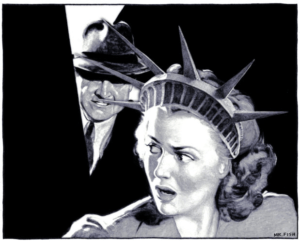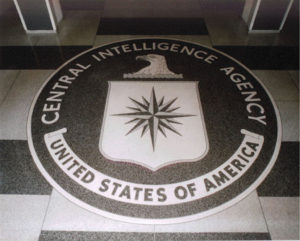‘Human Experimentation Was a Core Feature of the CIA Torture Program’
If journalists and officials began talking about the tests that CIA psychologists conducted on suspected terrorists at U.S. black sites, would Americans demand the prosecution of those responsible? Photo by Pedro Fanega (CC BY 2.0)
Photo by Pedro Fanega (CC BY 2.0)
Photo by Pedro Fanega (CC BY 2.0)
If journalists and officials began talking about the tests that CIA psychologists conducted on suspected terrorists at U.S. black sites, would Americans demand the prosecution of those responsible?
Beyond a handful of low-level troops and contractors, no one — including the officials in charge — has been held accountable for the grisly tortures that were detailed in the Senate report on the CIA’s post-9/11 detention and interrogation program, writes Lisa Hajjar, a professor of sociology at UC Santa Barbara. “Indeed, impunity has been virtually guaranteed as a result of various Faustian bargains” between the CIA, Congress and the White House, she says. “An American majority, it seems, has come to accept the legacy of torture.
“Human experimentation, in contrast, has not been politically refashioned into a legitimate or justifiable enterprise. Therefore, it would behoove us to appreciate the fact that the architects and implementers of black-site torments were authorized at the highest levels of the White House and CIA to experiment on human beings. Reading the report through this lens casts a different light on questions of accountability and impunity.”
Hajjar continues: “[T]he experimental nature of the interrogation and detention techniques” used by the CIA “is clearly evident in the Senate Intelligence Committee’s executive summary of its investigative report, despite redactions (insisted upon by the CIA) to obfuscate the locations of these laboratories of cruel science and the identities of the perpetrators.”
The report reveals the CIA hired psychologists James Mitchell and Bruce Jessen to design interrogation and detention procedures that they and others would apply to suspects imprisoned in the agency’s secret “black sites” across the globe. Neither Mitchell nor Jessen possessed the qualifications that are standard for military interrogators, nor did they have specialized knowledge about al-Qaida or relevant cultural or linguistic knowledge. “What they had was Air Force experience in studying the effects of torture on American prisoners of war, as well as a curiosity about whether theories of ‘learned helplessness’ derived from experiments on dogs might work on human enemies,” Hajjar writes. She continues:
To implement those theories, Mitchell and Jessen oversaw or personally engaged in techniques intended to produce “debility, disorientation and dread.” Their “theory” had a particular means-ends relationship that is not well understood, as Mitchell testily explained in an interview on Vice News: “The point of the bad cop is to get the bad guy to talk to the good cop.” In other words, “enhanced interrogation techniques” (the Bush administration’s euphemism for torture) do not themselves produce useful information; rather, they produce the condition of total submission that will facilitate extraction of actionable intelligence.
At least 38 people were tested in the manner described between April of 2002 and 2008, when the program was officially ended. “[T]he results were methodically documented and analyzed,” Hajjar writes. “That is the textbook definition of human experimentation.
“[B]ecause the concept of torture has been so muddled and disputed,” she concludes, “I suggest that accountability would be more publicly palatable if we reframed the CIA’s program as one of human experimentation. If we did so, it would be more difficult to laud or excuse perpetrators as ‘patriots’ who ‘acted in good faith.’ Although torture has become a Rorschach test among political elites playing to public opinion on the Sunday morning talk shows, human experimentation has no such community of advocates and apologists.”
— Posted by Alexander Reed Kelly.
Your support is crucial…With an uncertain future and a new administration casting doubt on press freedoms, the danger is clear: The truth is at risk.
Now is the time to give. Your tax-deductible support allows us to dig deeper, delivering fearless investigative reporting and analysis that exposes what’s really happening — without compromise.
Stand with our courageous journalists. Donate today to protect a free press, uphold democracy and unearth untold stories.







You need to be a supporter to comment.
There are currently no responses to this article.
Be the first to respond.